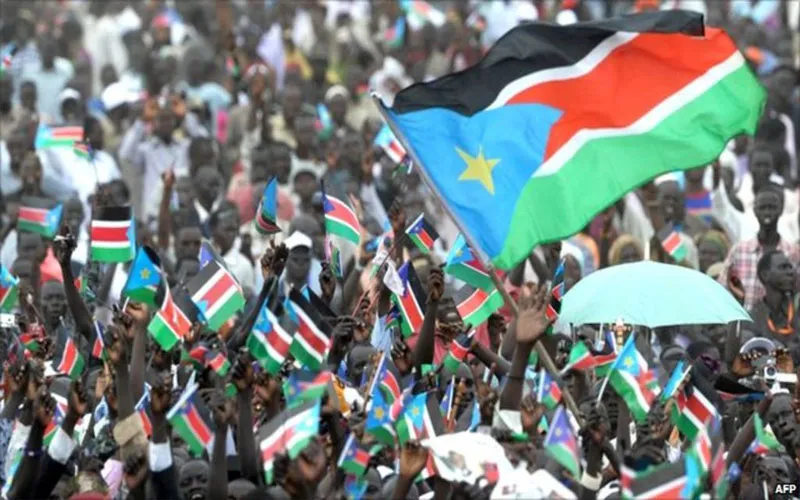Juba, 22 October, 2019 / 12:00 am (ACI Africa).
As the clock ticks on toward the formation of a unity government in South Sudan scheduled for November 12, Catholic Bishops and heads of dioceses in the country are calling for peace and justice and demanding for a shift from “power-sharing” to “addressing the root causes of the conflicts” affecting the people in the world’s newest nation.
In a message issued by the South Sudan Catholic Bishops dated Friday, October 18, the Catholic Church leaders in South Sudan have questioned “why the focus of peace efforts is on power-sharing between two or more individuals rather than addressing the root causes of the conflicts.”
“The conflict must not be personalized between President Salva Kiir and Dr. Riek Machar, and a few other elite leaders. The people must be at the Centre,” the Bishops have stated following deliberations during their two-day meeting with the Chargé d’Affaires at the Juba-based Apostolic Nunciature, Monsignor Mark Kadima, in attendance.
“Our focus is not on politics but on the dignity of every person,” the Bishops and heads of dioceses have clarified in their message and explained, “As we look around our dioceses and see the continued suffering of the IDPs (Internally Displaced Persons), the people in POCs (Protection of Civilians) and refugees, a humanitarian tragedy which is made worse by the breakdown of the economy and the continued violence in some areas, our hearts are touched.”
The Clerics are demanding for responsible leadership in matters affecting the ordinary people of South Sudan “including issues of governance, violence, poverty, lack of basic services, corruption, national identity, and conflict within and between communities over resources, land, pasture, water and cattle.”








